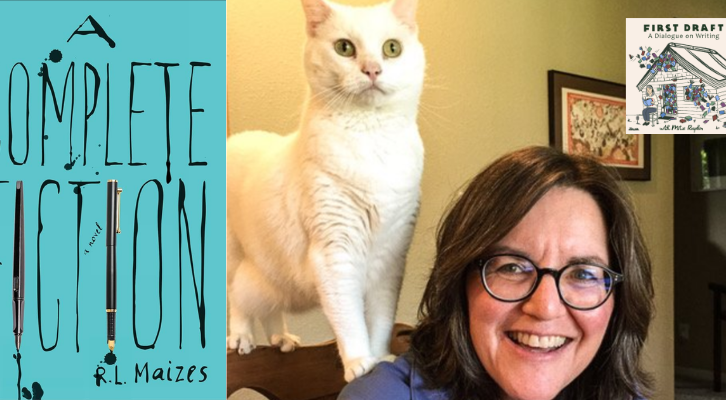Otto Penzler ranks, analyzes, & celebrates the 106 greatest crime films of all-time. Catch up on the series and find new installments daily here.
__________________________________
Chinatown (1974)
__________________________________
TYPE OF FILM: Detective
STUDIO: Paramount
PRODUCER: Robert Evans
DIRECTOR: Roman Polanski
SCREENWRITER: Robert Towne
SOURCE: Original
RUNNING TIME: 131 minutes
PRINCIPAL PLAYERS:
Jack Nicholson………………………………………..…………………………..J.J. “Jake” Gittes
Faye Dunaway……………………………………………………..……………..Evelyn Mulwray
John Huston…………………………………………………………………………….Noah Cross
Perry Lopez…………………………………………………………………………..…….Escobar
John Hillerman……………………………………………………………………………Yelburton
Darrel Zwerling……………………………………………………………………Hollis Mulwray
Roman Polanski…………………………………………………………………….hood with knife
Dick Bakalyan………………………………………………………………………………..Loach
Diane Ladd……………………………………………………………………………..Ida Sessions
Roy Jenson………………………………………………………………………….…….Mulvihill
Joe Mantell……………………………………………………………………………………Walsh
Bruce Glover……………………………………………………………………………..…..Duffy
__________________________________
DID YOU KNOW?
__________________________________
This superb detective film was actually based on a true scandal of early twentieth-century Los Angeles. Then a modest-size western city filled with farmers, Mexican day laborers, Chinese immigrants, and adventurers seeking their fortunes in the west, it was also a hot, subtropical region that relied for its existence and well-being on a plentiful supply of water. A scheme had been hatched by a group of wealthy landowners to buy huge tracts on the outskirts of the sprawling city and then use their political power to have that arid, nearly useless acreage incorporated into the city of Los Angeles, giving them legal access to the water supply paid for by the taxpayers. Some of the most staggering fortunes of the time, many still in place (such as the heirs to the former L.A. Times-Mirror estate), were created in this manner. While the tactics employed to amass this wealth may have been corrupt, they were technically legal.
__________________________________
THE STORY
__________________________________

J.J. “Jake” Gittes (whose name is pronounced differently by virtually everyone with whom he comes in contact) is a former Los Angeles policeman who worked in Chinatown but now is a private detective handling mainly divorce cases in Hollywood. He is hired ostensibly to find evidence against a philandering water commissioner, Hollis Mulwray, by a woman claiming to be Mulwray’s wife. While working on that case, he is also hired by the wealthy Noah Cross. Gittes comes to believe that he has been used as a pawn to set up Cross in the murder of Mulwray, who has discovered a scam to cheat the people of Los Angeles out of the water they need and for which they pay.
Gittes is warned off the case by a former cop and his partner. Feeling a verbal warning would not suffice, the tough holds a knife to Gittes’s nose. “You’re a very nosy fellow,” he says to Gittes. “You know what happens to nosy fellows? Wanna guess? No? Okay. They lose their noses.” He cuts through Gittes’s nostril and adds, “Next time, you lose the whole thing. I’ll cut it off and feed it to my goldfish.”
Gittes persists and learns that Mulwray’s wife, Evelyn, is Cross’ daughter and that the woman who he saw with Hollis Mulwray was Evelyn’s sister—and also her daughter, the result of an incestuous relationship with her father, Noah Cross.
Cross, already a multimillionaire, is the mastermind behind a scheme to buy arid, virtually worthless farms during a terrible drought and have the land irrigated by diverted water from nearby Los Angeles, guaranteeing the elderly tycoon even greater wealth and power. Gittes tries to protect Evelyn and her daughter from her ruthless father but is arrested. Powerless, Evelyn tries to escape, only to be shot by a policeman as her fifteen-year-old daughter, screaming in despair at the sight of her dead mother, is comforted by an almost leering Cross.
***
Chinatown is an original screenplay by Towne that started out at nearly 250 pages (twice as long as the film). Director Roman Polanski worked on the script for nearly two months, eliminating many characters and forming a more linear and coherent story line. He also wrote a new ending, about which he and Towne argued furiously. The final version had not been decided upon until after the picture was in production. In the original, Evelyn shoots Cross and goes off with Gittes and her daughter, but Polanski wanted the darker version that was eventually made. Towne never forgave the change and hated it.
Although a brilliant neo-noir film that paid open homage to Dashiell Hammett (Gittes bears numerous similarities to Sam Spade), James M. Cain (whose characters are rarely moral), Raymond Chandler (it is his Los Angeles in which the action transpires), and others, there is a major diversion from prototypical noir films: Evelyn Mulwray. Introduced and set up as the classic femme fatale for whom Gittes will fall, only to be betrayed by her greedy and cold heart, she instead turns out to be the victim whose life has been clouded by a terrible secret from which she can never escape.
Polanski may have been influenced in favor of his darker version of the story as he was still mourning the brutal murder of his pregnant wife, Sharon Tate, their unborn child, and several friends by members of the Charles Manson family. The brief but memorable scene in which Polanski uses a knife to split open Nicholson’s nose, forcing him to wear bandages for the rest of the film, reflects the brutal violence of the killings. Several years later, Polanski was arrested for the statutory rape of a thirteen-year-old girl and fled the United States to avoid prosecution.
Robert Towne was awarded an Oscar for Best Original Screenplay, while Academy Award nominations also went to the film for Best Picture, to Nicholson for Best Actor, to Dunaway for Best Actress, and Polanski for Best Director. Towne won an Edgar Allan Poe Award from the Mystery Writers of America for his screenplay.
Faye Dunaway, while glamorous, is not especially beautiful in this role. Director Polanski was more interested in making her seem subtly paranoid, sexually frustrated, and—reasonably—secretive. This effect is achieved by having her face overly powdered, with oddly thin eyebrows and deep lipstick. Polanski filmed her by holding the camera very close to her face, which made even the experienced and talented actress unduly jumpy.
Given the tremendous critical and popular acclaim received by the film, there was a much discussed and anticipated sequel, The Two Jakes (1990), which was, predictably, a disappointment. It was directed by its star, Jack Nicholson, in a beautiful but ultimately incomprehensible and overly talky narrative that also starred Harvey Keitel (as the other Jake) and Meg Tilly as a philandering wife. Faye Dunaway has a nice cameo.
__________________________________
BEST LINE
__________________________________
Policeman to Jake Gittes: “You must really think I’m stupid, don’t you, Gittes?” “I don’t think about it that much,” the detective replies, “but give me a day or two and I’ll get back to you.”


















